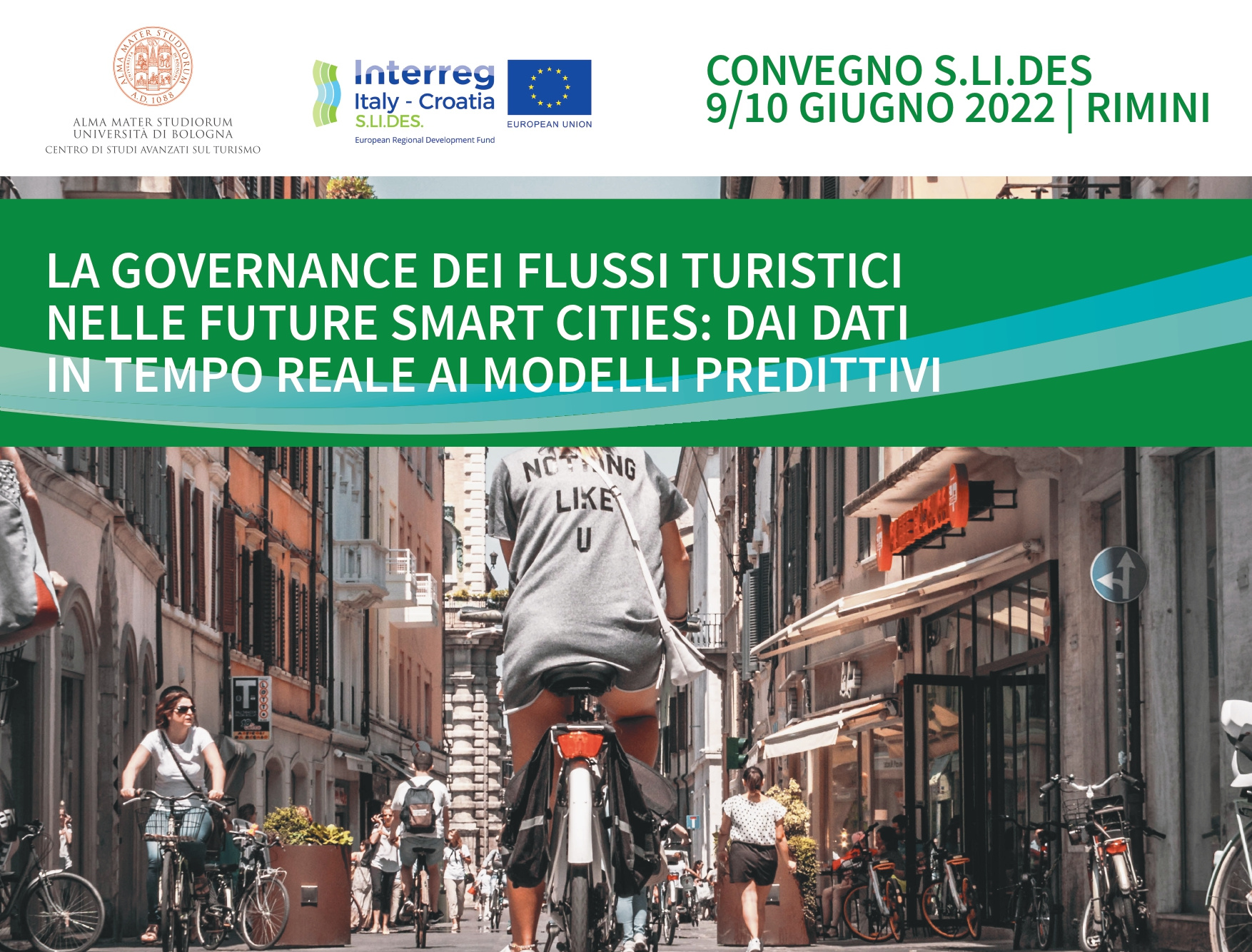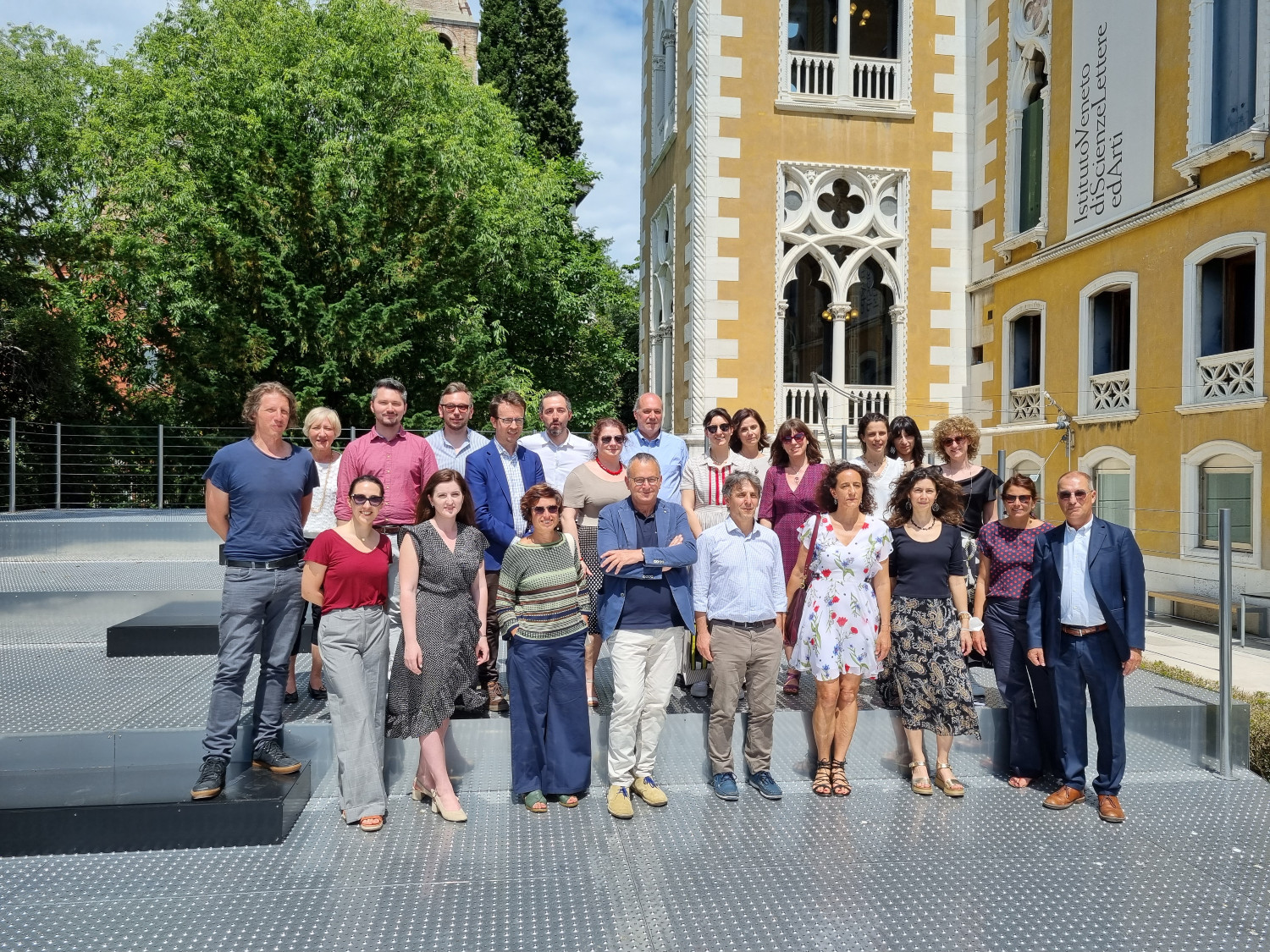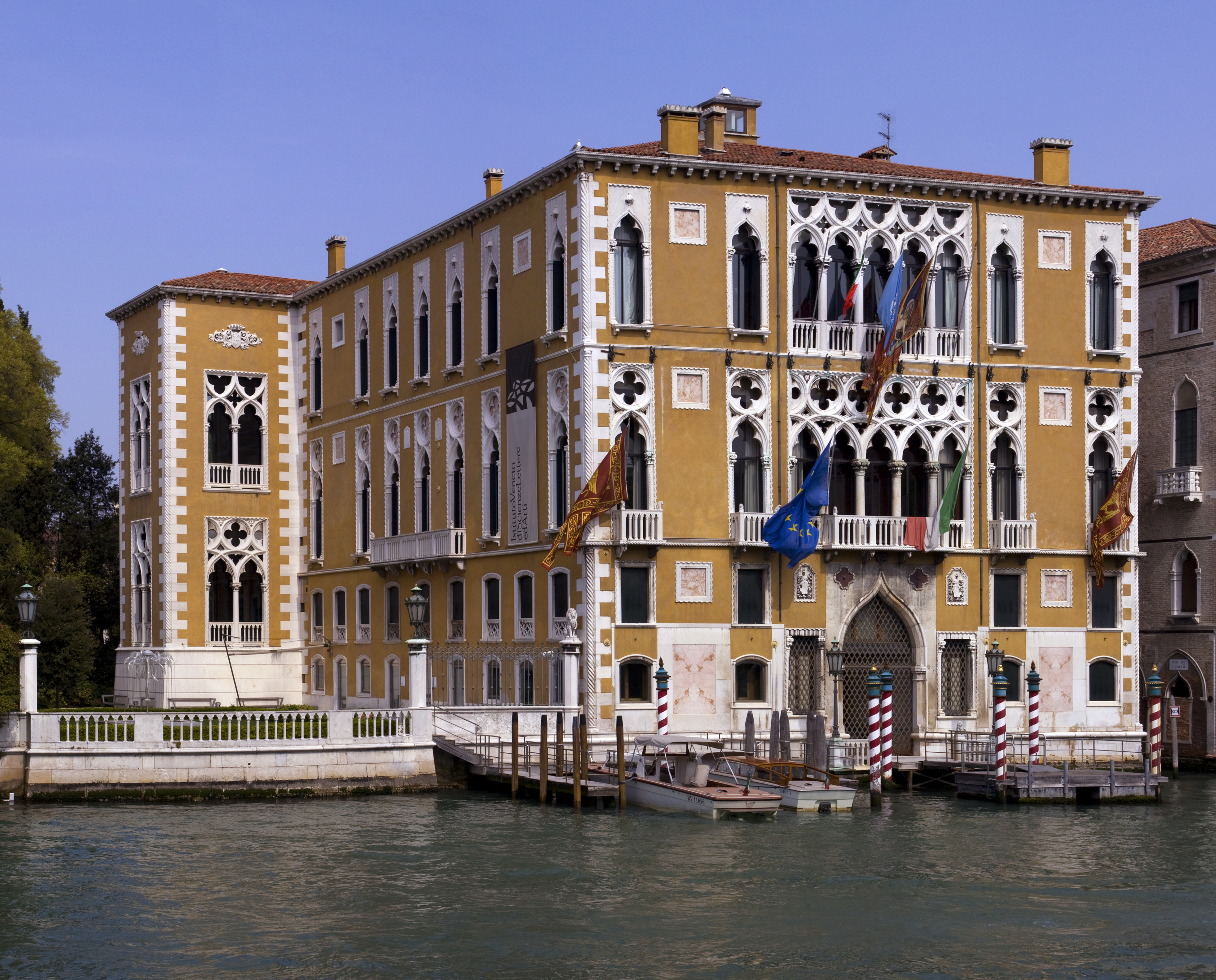On May 10th, the first official presentation of the S.LI.DES project to tourism professionals and experts took place. A panel, organised by CISET, was held during the digital edition of BIT Milano International Travel Exhibition, during which the salient features of the project were presented, highlighting the difficulties that cities and tourist destinations in general currently encounter in developing decision-making systems based on integrated data-hubs.
The panel, moderated by Domenico Palladino - editorial director of Qualitytravel.it -, was also the occasion to bring the experiences of the three Italian partner cities (Bari, Ferrara and Venice) to the public, illustrating how S.LI.DES fits into the initiatives already in place at urban level and the actions they intend to pursue within the project. Valeria Minghetti (CISET) opened the event, showing firstly the main objectives of the S.LI.DES project and the components of the S.LI.DES knowledge system: the city profile, the mobility models, the mapping of craft activities&CCIs and the datahub. Then, she focused on the characteristics and the structure of the Destination Dashboard (Why the Dashboard? What is it for? How does it work? What can I find inside?). Through a set of web screenshots, she illustrated the kind of information city managers can easily retrieve from each of the six Dashboard sections (City at a Glance, Tourism, Culture and Crafts, Environment, Accessibility and Mobility, City popularity&Attractiveness).
This presentation gave way to a round table, during which Elisabetta Piccin (Municipality of Venice), Lisa Pietropaolo (Municipality of Bari) and Massimo Poletti (Municipality of Ferrara) talked about the importance of S.LI.DES in order to have useful data available to learn about their city and its performance and then to make appropriate decisions, especially in uncertain times.
Speakers also explained what cities expect from the project regarding their tourism policies and what pilot actions they are launching to test the new Dashboard, created to provide data about the city’s state of the art and performances, as well as information about the mobility patterns, collected through a set of sensors and cameras, and on location and characteristics of craftmen, including their tourism potential.



